I was a wonderful parent before I had children.
ADELE FABERRelated Topics
Anand Thakur



I was a wonderful parent before I had children.
ADELE FABER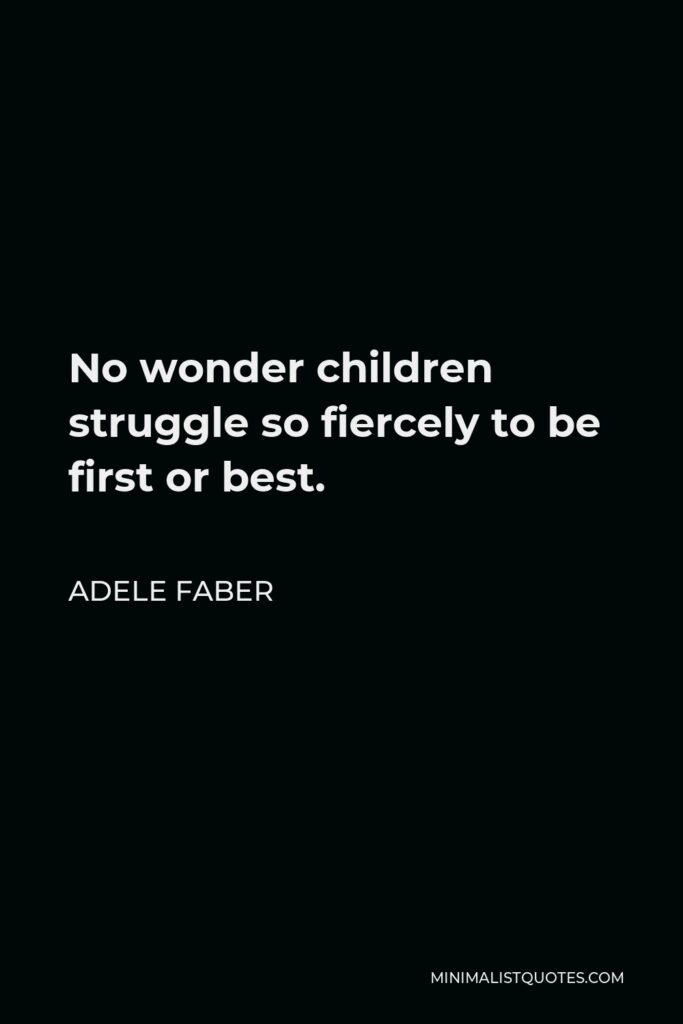

No wonder children struggle so fiercely to be first or best.
ADELE FABER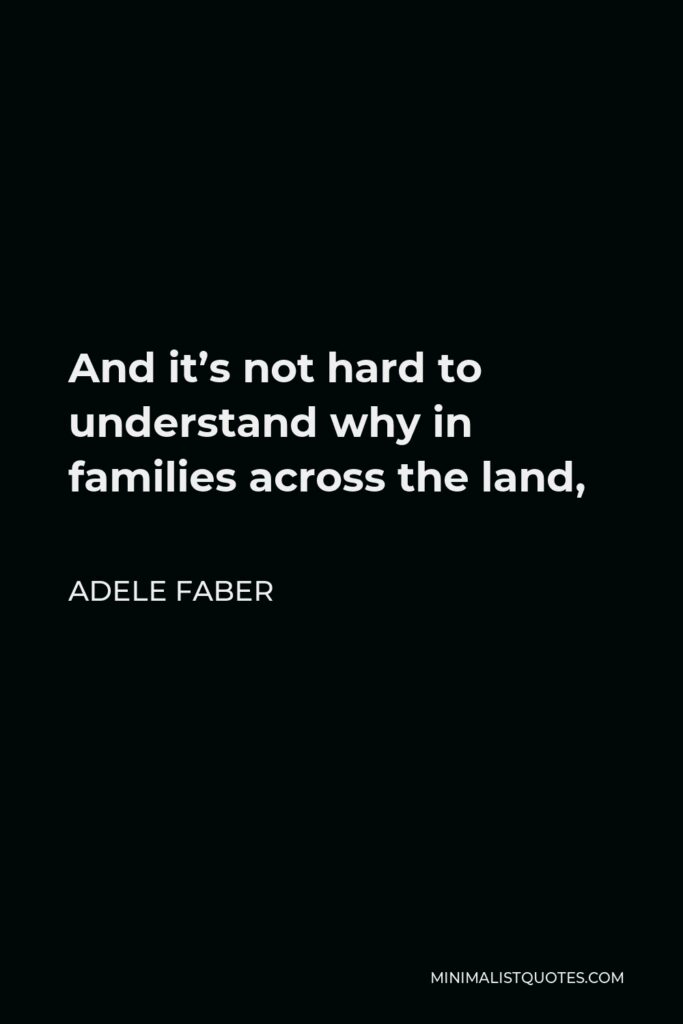

And it’s not hard to understand why in families across the land,
ADELE FABER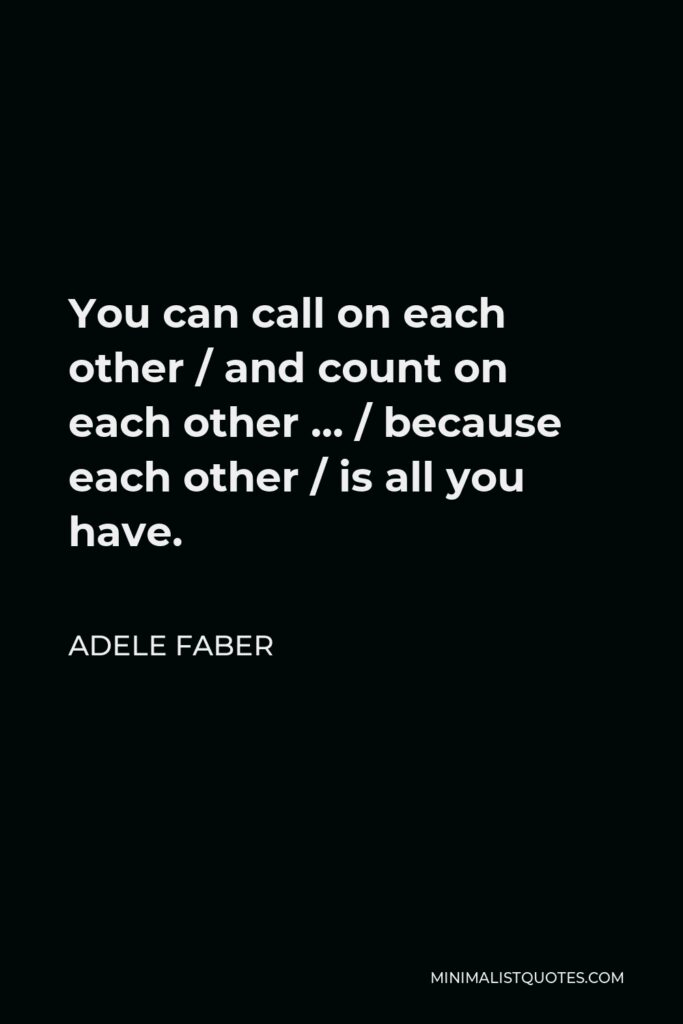

You can call on each other / and count on each other … / because each other / is all you have.
ADELE FABER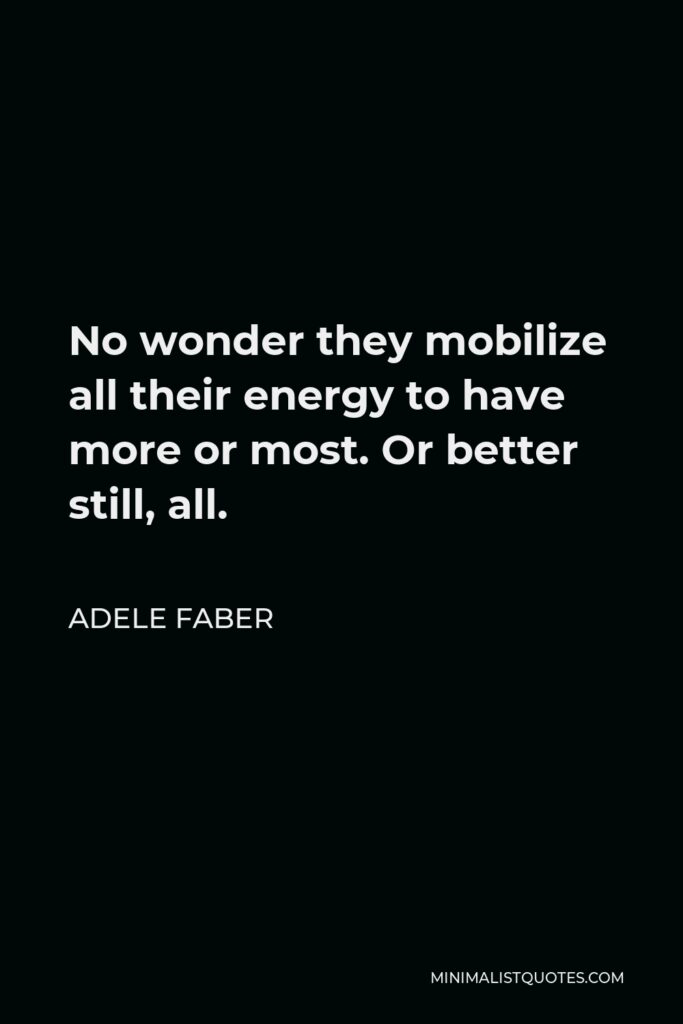

No wonder they mobilize all their energy to have more or most. Or better still, all.
ADELE FABER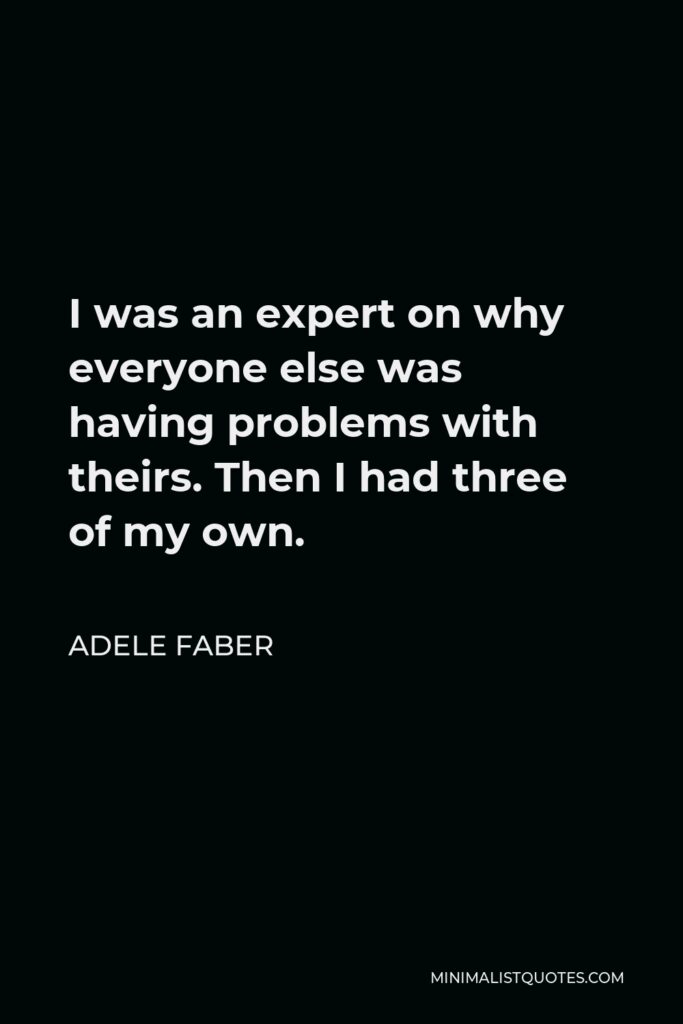

I was an expert on why everyone else was having problems with theirs. Then I had three of my own.
ADELE FABER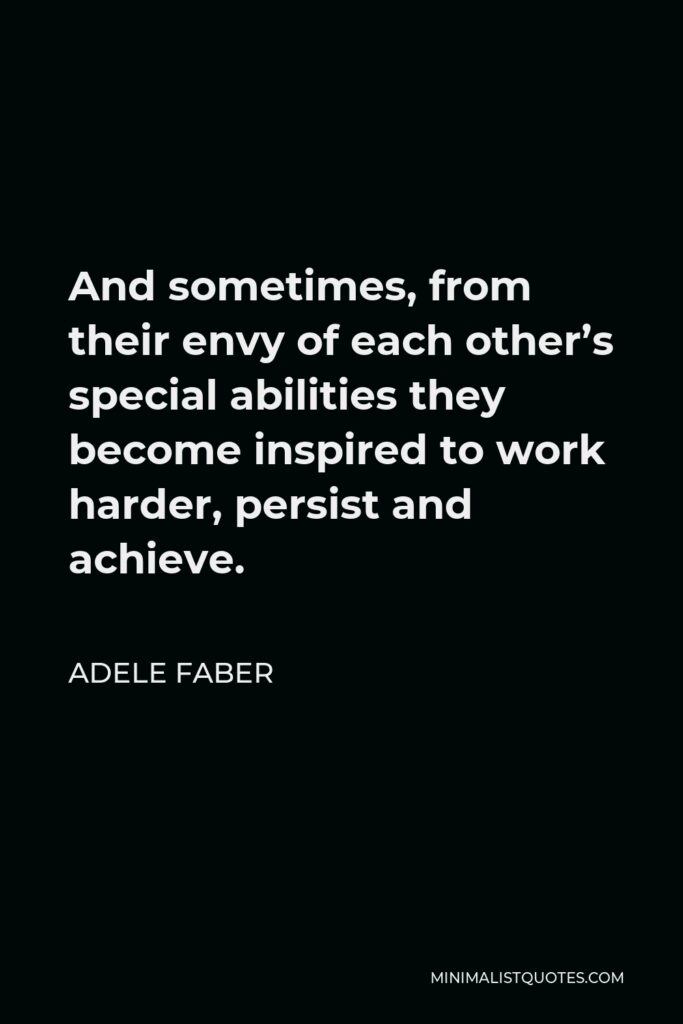

And sometimes, from their envy of each other’s special abilities they become inspired to work harder, persist and achieve.
ADELE FABER

Deep inside you know / when trouble comes / and there’s no one else to turn to
ADELE FABER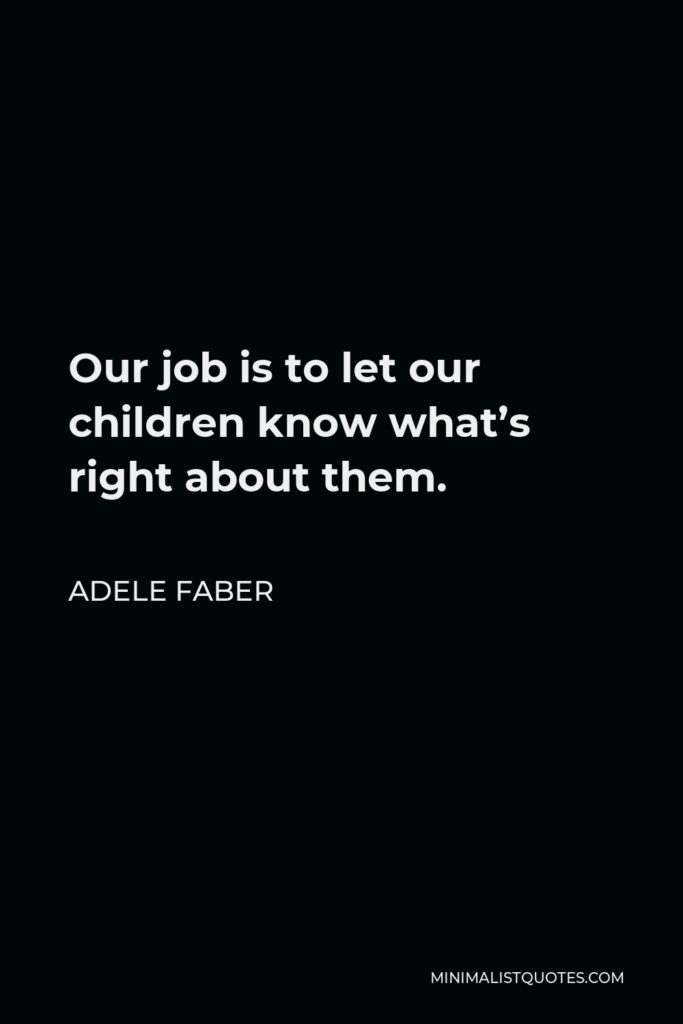

Our job is to let our children know what’s right about them.
ADELE FABER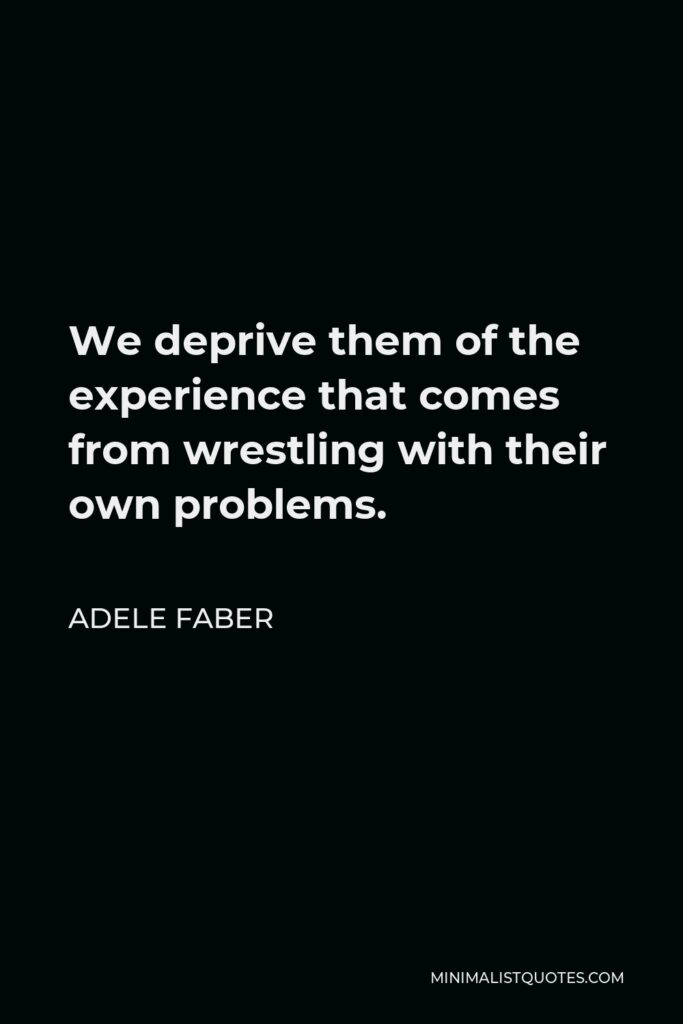

We deprive them of the experience that comes from wrestling with their own problems.
ADELE FABER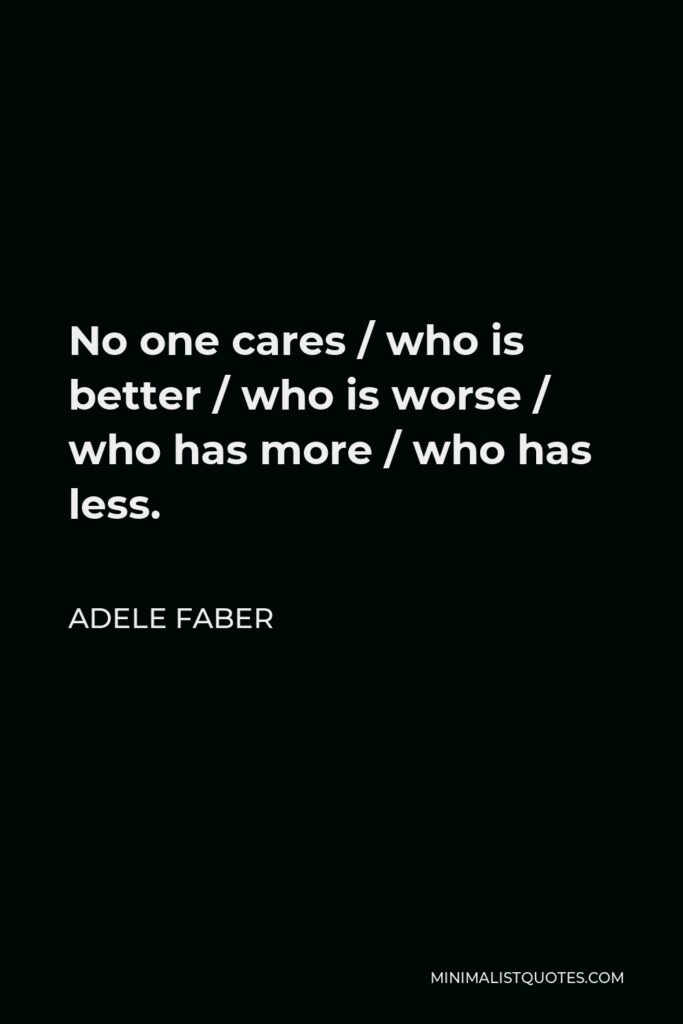

No one cares / who is better / who is worse / who has more / who has less.
ADELE FABER

Let us be different in our homes.
ADELE FABER

I was a wonderful parent before I had children.
ADELE FABER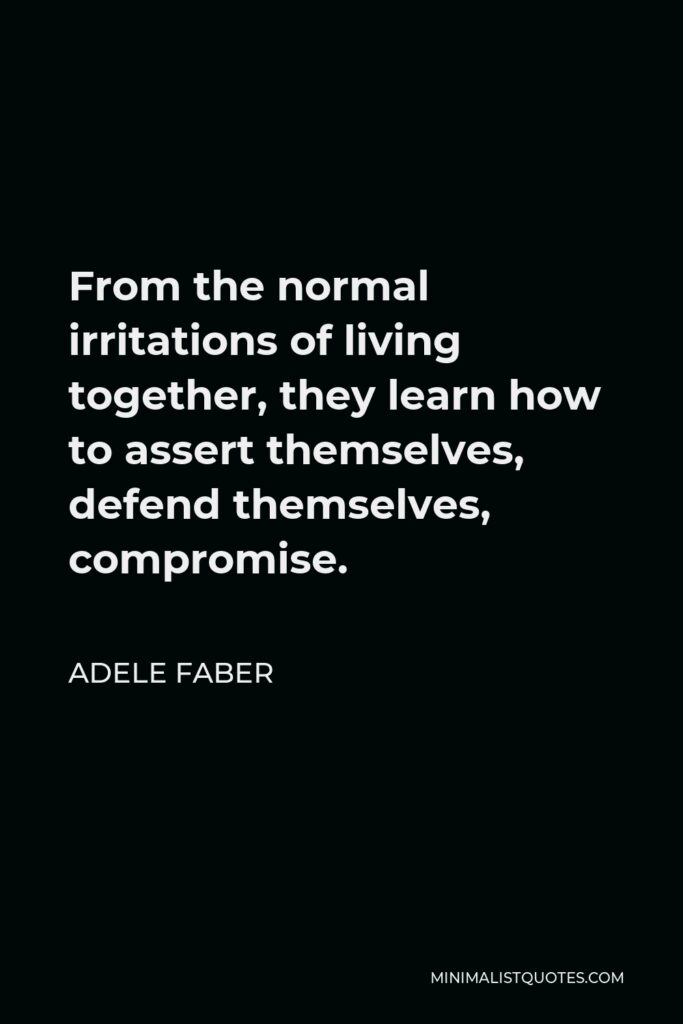

From the normal irritations of living together, they learn how to assert themselves, defend themselves, compromise.
ADELE FABER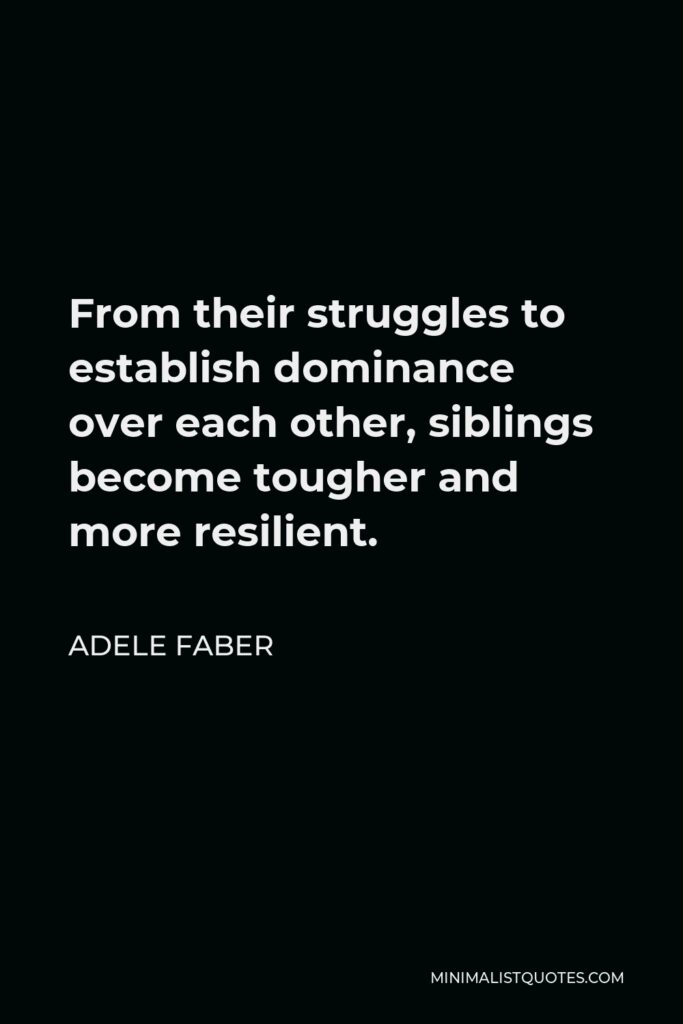

From their struggles to establish dominance over each other, siblings become tougher and more resilient.
ADELE FABER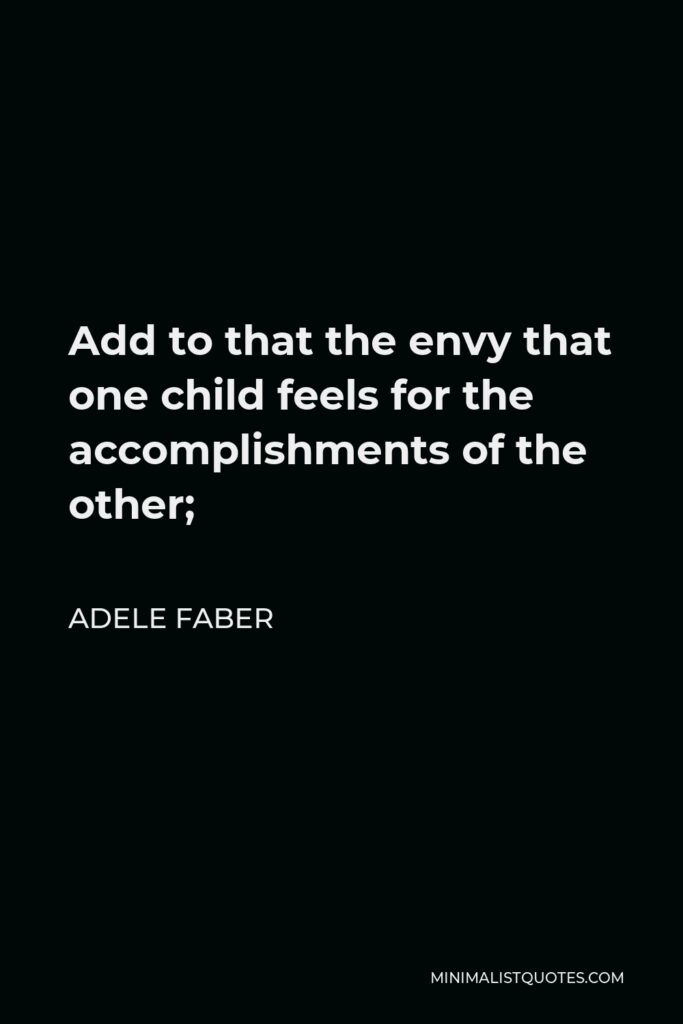

Add to that the envy that one child feels for the accomplishments of the other;
ADELE FABER